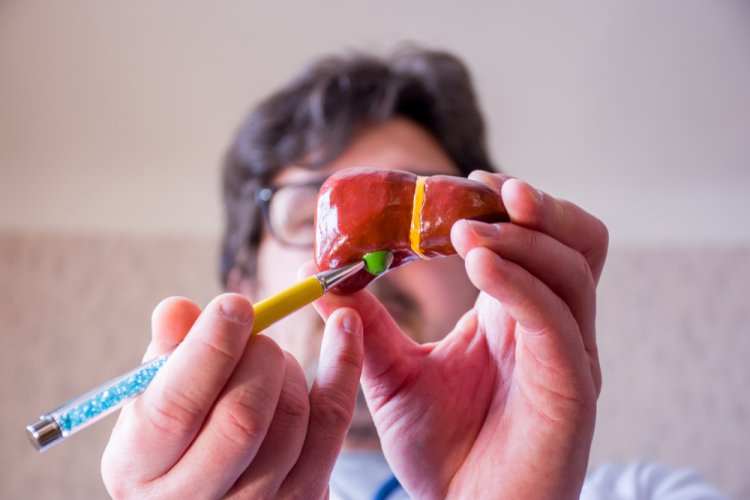Understanding Gallstones: Causes, Symptoms, Treatment, and Prevention
Discover essential information about gallstones, including causes, symptoms, treatment options, and prevention strategies. Learn how to manage this common condition effectively and when to seek medical advice. Read more to empower yourself with knowledge on gallstones and their impact on health.
Share this Post to earn Money ( Upto ₹100 per 1000 Views )

Gallstones are a common medical condition affecting millions worldwide. In this article, we explore everything you need to know about gallstones, including their causes, symptoms, treatment options, and preventive measures.
What Are Gallstones?
Gallstones are hardened deposits of bile, a digestive fluid produced by the liver, stored in the gallbladder. They can vary in size from small grains to golf ball-sized formations and can develop due to an imbalance in the substances that make up bile, such as cholesterol or bilirubin.

Causes of Gallstones
1. Excess Cholesterol: When there is too much cholesterol in the bile, it can crystallize and form gallstones.
2. Bilirubin Imbalance: Conditions that cause the liver to produce too much bilirubin, such as cirrhosis or certain blood disorders, can lead to pigment gallstones.
3. Gallbladder Motility Issues: If the gallbladder does not empty efficiently or often enough, bile may become concentrated, contributing to the formation of gallstones.
Symptoms of Gallstones
Gallstones may not always cause symptoms, but when they do, the following signs and symptoms may occur:
-
Sudden and Intense Pain: Typically in the upper right abdomen, often after a meal.
-
Back Pain: Between the shoulder blades or under the right shoulder.
-
Nausea and Vomiting: Especially after a fatty meal.
-
Jaundice: Yellowing of the skin and whites of the eyes in cases where gallstones block the bile duct.
Diagnosis of Gallstones
1. Ultrasound: Most commonly used to visualize gallstones in the gallbladder.
2. CT Scan or MRI: Can detect gallstones and complications in the bile ducts.
3. Blood Tests: To check for signs of infection, obstruction, or pancreatitis caused by gallstones.
Treatment Options
1. Watchful Waiting: If gallstones are not causing symptoms, a wait-and-see approach may be recommended.
2. Medications: Oral medications to dissolve cholesterol gallstones are available but are typically only effective for small stones and can take months or years to work.
3. Surgery: The most common treatment for symptomatic gallstones is cholecystectomy, the surgical removal of the gallbladder.
Prevention of Gallstones
1. Maintain a Healthy Weight: Obesity is a risk factor for gallstones, so maintaining a healthy weight through diet and exercise can help reduce your risk.
2. Eat a Balanced Diet: Limiting cholesterol and fat intake and increasing fiber-rich foods can help prevent gallstones.
3. Stay Hydrated: Drinking enough water each day can help maintain proper bile consistency.
Frequently Asked Questions (FAQs)
Q1: Can gallstones be prevented?
A: While not all gallstones can be prevented, maintaining a healthy weight and diet can reduce the risk.
Q2: What are the complications of untreated gallstones?
A: Complications may include infection of the gallbladder, blockage of the bile duct, or pancreatitis.
Q3: Is surgery the only treatment option for gallstones?
A: No, medications to dissolve gallstones are available, but they are not suitable for everyone and take time to work.
Q4: Are gallstones dangerous?
A: Gallstones can lead to serious complications if left untreated, such as infection or blockage of the bile duct.
Conclusion
Gallstones are a common and sometimes painful condition that affects many people worldwide. Understanding the causes, symptoms, and treatment options is crucial for managing gallstones effectively. Whether you're looking to prevent gallstones or seeking treatment options, early intervention and lifestyle modifications can make a significant difference. Consult with a best gallbladder stone surgeon for personalized advice and treatment.
















